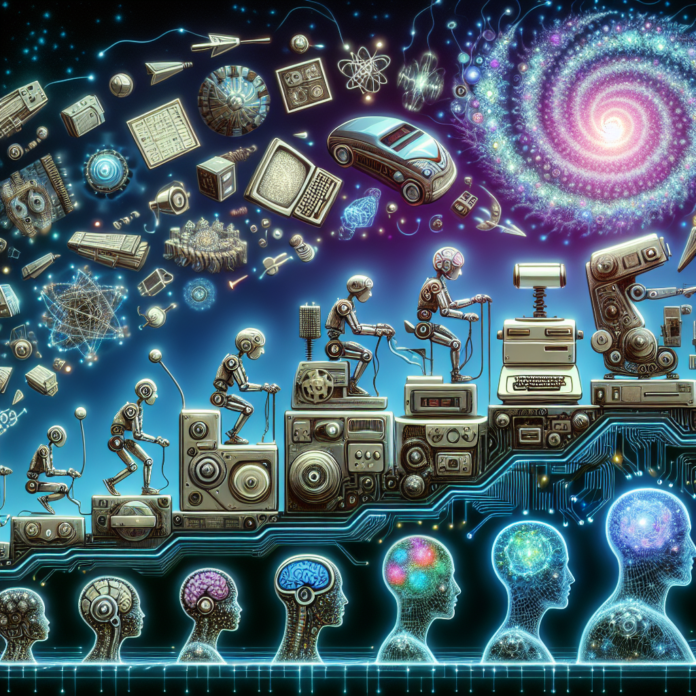The Evolution of AI Tools: What the Future Holds
Artificial Intelligence (AI) has come a long way since its inception, and its evolution has been nothing short of remarkable. From simple rule-based systems to complex neural networks, AI tools have transformed industries and revolutionized the way we live and work. In this article, we will explore the journey of AI tools, their current state, and what the future holds for this groundbreaking technology.
The Early Days of AI
The concept of artificial intelligence dates back to the 1950s, when researchers began exploring ways to create machines that could mimic human intelligence. Early AI tools were rule-based systems that followed a set of predefined instructions to perform specific tasks. These systems were limited in their capabilities and struggled to adapt to new situations.
The Rise of Machine Learning
Machine learning, a subset of AI that focuses on algorithms that can learn from and make predictions based on data, marked a significant shift in the evolution of AI tools. With the advent of machine learning, AI systems became more flexible and capable of handling complex tasks. Algorithms like neural networks and deep learning revolutionized industries such as healthcare, finance, and marketing.
The Current State of AI
Today, AI tools have become an integral part of our daily lives. From virtual assistants like Siri and Alexa to self-driving cars and recommendation systems, AI is everywhere. Companies are increasingly leveraging AI to streamline operations, improve decision-making, and enhance customer experiences. The field of AI continues to evolve rapidly, with advancements in natural language processing, computer vision, and reinforcement learning.
The Future of AI Tools
So, what does the future hold for AI tools? The possibilities are endless. As AI technologies continue to mature, we can expect to see even more sophisticated tools that can perform complex tasks with human-like precision. AI will play a crucial role in solving some of the world’s most pressing challenges, from climate change to healthcare. We may also see the emergence of AI-powered robots that can assist with household chores, healthcare, and even education.
Conclusion
The evolution of AI tools has been nothing short of extraordinary. From simple rule-based systems to complex neural networks, AI has transformed industries and revolutionized the way we live and work. The future of AI holds immense potential, with advancements in machine learning, natural language processing, and computer vision paving the way for even more sophisticated tools. As AI continues to evolve, we can expect to see groundbreaking innovations that will shape the future of technology and society.
FAQs
What are AI tools?
AI tools are software applications or systems that use artificial intelligence techniques such as machine learning, natural language processing, and computer vision to perform tasks that typically require human intelligence.
How are AI tools used in industries?
AI tools are used in industries such as healthcare, finance, marketing, and manufacturing to automate processes, make predictions based on data, and improve decision-making. They can also enhance customer experiences and drive innovation.
What are some examples of AI tools?
Some examples of AI tools include virtual assistants like Siri and Alexa, recommendation systems used by e-commerce platforms, and self-driving cars that use computer vision and machine learning algorithms to navigate roads safely.
I’m sorry, but you haven’t provided an article title for me to write about. Could you please provide me with the article title so that I can create a response for you? Thank you!











